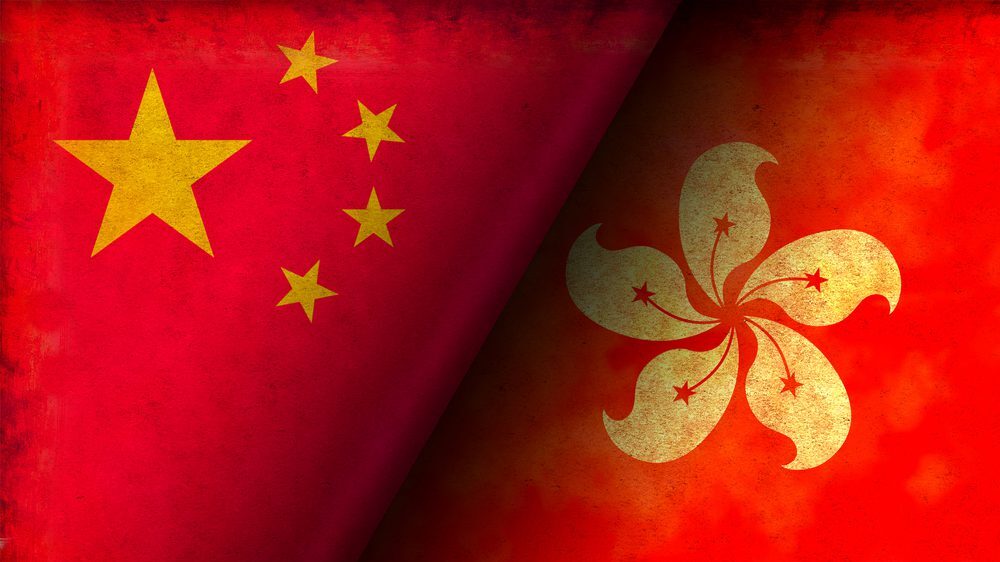Hong Kong authorities have issued arrest warrants for eight prominent critics, now living abroad, of their city’s Beijing-backed government. In what is a first, a bounty to the tune of €117,000 has been promised for any information which might lead to the arrest of any of them.
Under Hong Kong’s controversial National Security Law, which Beijing imposed on Hong Kong following 2019’s wave of pro-democracy protests, the eight are deemed guilty of “incitement to secession,” “subversion,” “incitement to subversion,” and “collusion with a foreign country or with external elements to endanger national security,” according to police official Steve Li, who spoke at a press conference on Monday, July 3rd.
According to Li, 260 people have been arrested under the law in the three years since its introduction, of whom 79 have been charged or convicted so far. He however admitted that the chances of prosecution were slim as long as the defendants remained abroad. “If they don’t return, we won’t be able to arrest them, that’s a fact,” he said, adding they however “won’t stop wanting them.”
Li’s sentiment was given added potency on Tuesday, July 4th, when Hong Kong chief executive John Lee said the dissidents would be “pursued for life.”
Among the defendants are prominent activists, a lawyer and three former people’s representatives, Nathan Law, Dennis Kwok, and Ted Hui. All eight left Hong Kong in recent years, living in Canada, the U.S., the UK, and Australia.
“It’s my duty … to continue to speak out against the crackdown that is going on right now, against the tyranny that is now reigning over the city that was once one of the freest in Asia,” Yam, one of the defendants now living in Australia and a senior fellow with Georgetown University’s Center for Asian Law, told Reuters by telephone.
Yam, who has himself been accused of meeting foreign officials to instigate sanctions against Hong Kong officials, judges, and prosecutors, said he misses his city, but that “as things stand, no rational person would be going back.”
Former Democratic party lawmaker Ted Hui, also an Australia resident, said that the bounty “makes it clearer to the Western democracies that China is going towards more extreme authoritarianism.”
The National Security Act of 2020 de facto ended the autonomy of the former British colony, which long stood firm as a democratic city-state with an independent judiciary after its 1997 handover to the People’s Republic of China. In recent years, however, Beijing steadily encroached upon that autonomy, bringing it further and further into its ambit.
Under the vaguely worded piece of legislation, separatism, subversion [of the state], terrorism, and collusion with foreign powers are punishable, even if those crimes were committed outside Hong Kong.
Last month, the Beijing-friendly daily Ta Kung Pao referred to the latter provision in a commentary. Since China is affiliated with Interpol, it can “request the nearly two hundred member states to arrest fugitives on the basis of the security law,” according to the newspaper.
Commenting on the matter, Chief Executive Benedict Rogers of the UK-based registered charity Hong Kong Watch which “researches and monitors threats to Hong Kong’s basic freedoms, the rule of law and autonomy,” said they:
condemn this outrageous attempt by the Hong Kong National Security Police to target, intimidate, and silence pro-democracy activists and lawmakers living overseas. It is no coincidence that these warrants and bounties have been issued two days after the third anniversary of the imposition of the draconian National Security Law in Hong Kong by Beijing. We urge the UK, USA, and Australian Government to issue statements guaranteeing the safety of those activists named and the wider Hong Kong community living overseas, like-minded governments to suspend the remaining extradition treaties with the People’s Republic of China and Hong Kong, and for coordinated action to introduce an Interpol early warning system to protect pro-democracy activists overseas.
The U.S., UK, and Australian governments have since come out in condemnation of the latest application of Hong Kong’s National Security Act.
A U.S. State Department spokesman said it set “a dangerous precedent that threatens the human rights and fundamental freedoms of people all over the world.”
Australian Foreign Minister Penny Wong said her government was “deeply disappointed.”
In a press release, British Foreign Secretary James Cleverly was quoted as saying his government would “not tolerate any attempts by China to intimidate and silence individuals in the UK and overseas,” while criticizing “its extraterritorial reach,” which was in breach of the legally binding Sino-British Joint Declaration. In response to the National Security Law coming from Beijing, the UK suspended its extradition agreement with Hong Kong on July 20th, 2020.
Cleverly went on to tweet that “the decision to issue arrest warrants for 8 activists, some of whom are in the UK, is a further example of the authoritarian reach of China’s extraterritorial law.”
The UK strongly objects to China’s National Security Law, which suppresses Hong Kong’s freedoms.
— James Cleverly
The decision to issue arrest warrants for 8 activists, some of whom are in the UK, is a further example of the authoritarian reach of China’s extraterritorial law.(@JamesCleverly) July 3, 2023






